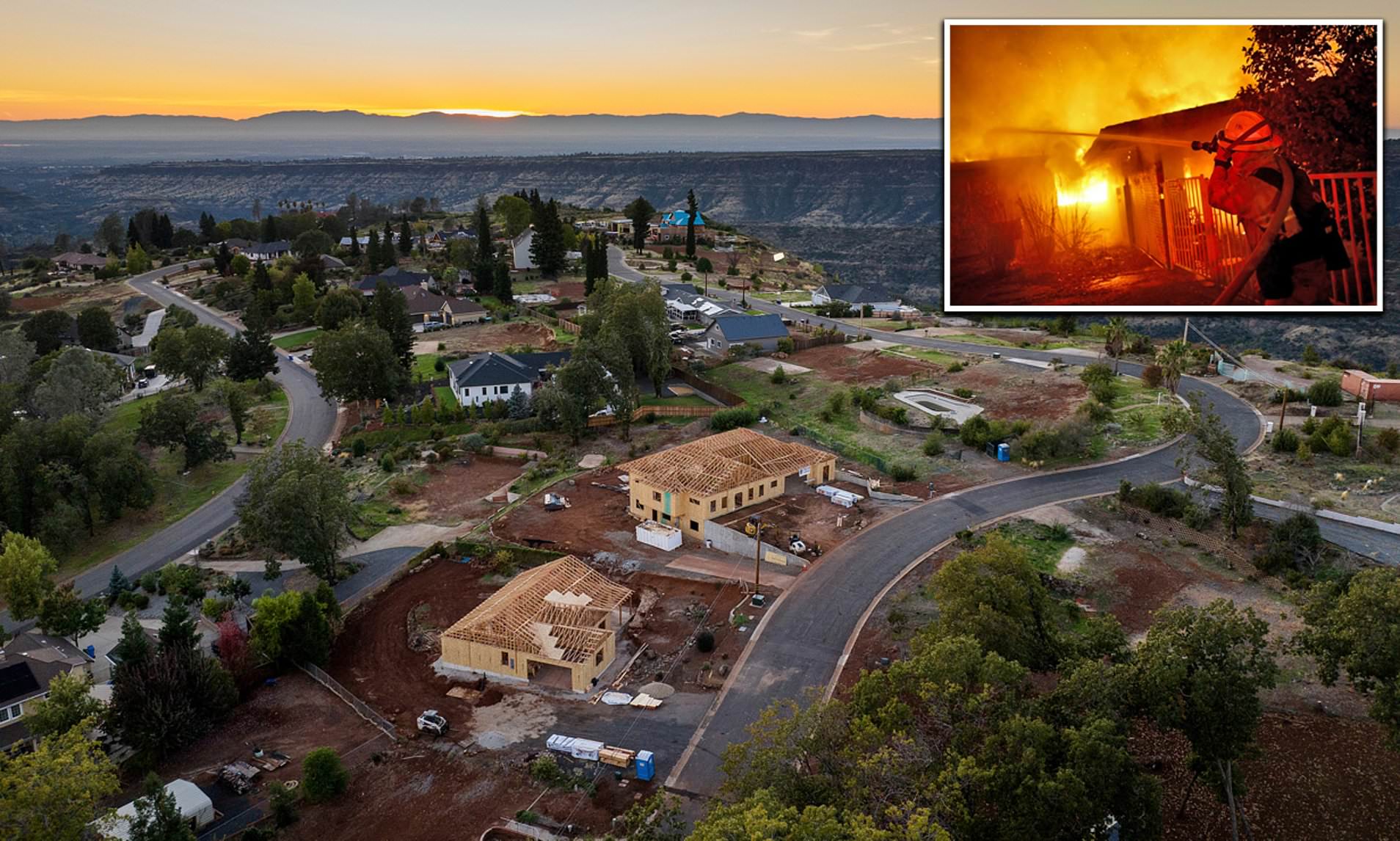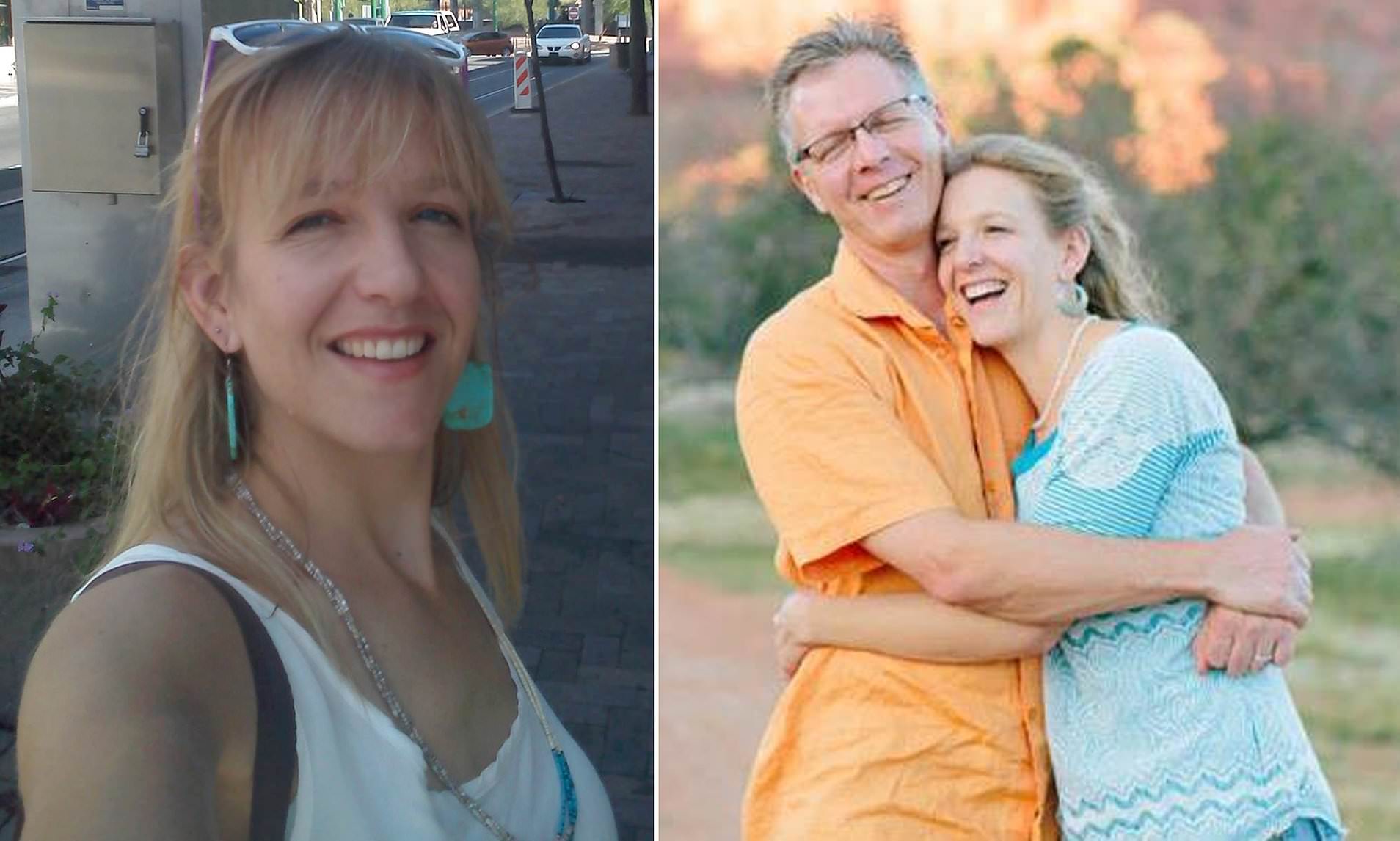
AMERICA'S MOST UNLIKELY BOOM TOWN: WIPED OFF THE MAP BY WILDFIRE
Bargain hunters are swooping in on an unlikely boom town in California that was once completely burned to the ground in the deadliest wildfire in the state's history.
Paradise, California, was the scene of Camp Fire in 2018 that left 85 people dead and the quiet community in the Sierra Nevada foothills almost erased entirely.
Nearly six years later - with the help of thousands of people and billions of dollars in aid - the town is now experiencing a construction boom, making it the fastest-growing town in the Golden State.
But the growth has also seen living and housing costs soar, leaving many locals in fear of being priced out amid an influx of out-of-towners.
The dramatic transformation of Paradise has featured new schools, thousands of new homes and recently installed emergency alert sirens in case of future wildfires.
Plans are also in motion for extensive road paving and modern underground infrastructure.
As well as rebuilding, it is also reimagining itself as a future arts hub and one of America's most wildfire-prepared towns.
Paradise Mayor Greg Bolin, who also owns Trilogy Construction Inc., one of the town's main construction companies, said: 'I can see what it's going to look like. I know how nice it is going to be when it's done'.
But the this resurgence comes with a significant downside: rising living costs.
The expense of living in the revitalized town is climbing - with everything from water to building materials now more expensive.
The price of an average home has also doubled since the devastating wildfire from a median $236,000 to nearly $440,000 today.
Yet while a painful increase for locals, this is still far cheaper than the state average of over $800,000 or $1.25 million in the Bay Area - leading to an influx of newcomers seeking a bargain.
Residents are also battling soaring home insurance costs, the Associated Press reported last year.
Some have received annual premiums that near or exceed $10,000 - leaving many concerned about how they will be able to manage paying insurance so high in an area that is supposed to be among the most affordable in California.
Heidi Lange was one of the first residents to rebuild after the deadly wildfire only to later find out her annual home insurance premium had increased from $1,200 to $9,750.
'To see we've come so far, only to have the legs kicked out from under us,' she told the Associated Press. 'This is so crazy to me. How is this the biggest thing we're dealing with?'
Moreover, the town is experiencing supply shortages and rising material costs - making the cost of rebuilding extra pricey, residents told The Guardian.
The increasing cost of living means many former residents may not have the chance to return to the place they once called home.
Today's population is just under 10,000 - less than half of the 16,000 who lived in Paradise before the fire.
The Camp Fire destroyed about 11,000 homes, which amounted to about 90 percent of the town's structures.
So far 2,500 homes have been rebuilt. About 700 are under construction at any one time, many on original lots.
But just six of the town's 36 mobile home parks that served mostly low-income and older residents have reopened.
Donna Hooton and her husband, who rely on social security, lived in one of the mobile home parks destroyed by the fire.
They told the AP they can no longer afford to move back to Paradise and now live an hour away, in a small, decades-old mobile home.
'We wish we could go home but home is not there anymore,' Hooton said.
Stephen Murray, a contractor hailed as a local hero for helping hundreds escape the fire, has lived in Paradise for over 35 years.
He was determined to return after the disaster, but now worries whether he and his friends and family will be able to continue to call Paradise home.
He is in the process of working out how he and his neighbors can afford to stay.
'I drive around Paradise every day looking at these places that are being built,' Murray told The Guardian. 'There's work here, but prices are just going up and up and up.'
Murray, who knows the town and market better than most, said: 'It's expensive. There's people that can afford it. But what about the people that can't?'
He still lives in Paradise with his family, although his wife is worried the town will someday soon become a trendy upscale tourist destination like Lake Tahoe.
'The rising costs have been challenging, he added, even for someone with more resources. 'It happens about once a month where I'm like, 'You know what, I just need to leave. I need to go where I can afford to.'
There are now endless contracting jobs for Murray, but he does not hesitate to turn some down in an effort to 'keep some semblance of the old Paradise.'
'Somebody was buying six acres of Paradise from out of state and they wanted to come here and build these big mansion houses that we can't afford,' Murray told the outlet. 'It's not the first time I've said no because there's nobody in my circle that I know in this town that can afford a house like that.'
'Houses are generally selling fairly quickly,' Warren Bullock, a real estate broker whose worked in Paradise for the last 20 years, told SF Gate.
'And I would say up to 70 percent of the homes or lots we sell today are to people who have not lived here before.'
'They're primarily from California but looking to simplify their lives,' Bullock added.
'A lot of people that I see moving to the area have similar goals or interests to people that were here before the fire: bigger yards, less neighbors right on top of you.'
The deadly fire that destroyed the town broke out on November 8, 2018. Within hours powerful winds had torn through the area that saw the fire snake into the Sierra foothills, forcing residents to flee.
The blaze raged until November 25, with more than 150,000 acres lost and 85 people killed.
In just 36 hours, the Camp Fire laid waste to the town of Paradise, destroying 95 per cent of the buildings in the town of 27,000 residents.
As of May 2019, PG&E estimated they had $10.5 billion in liabilities for the damage caused by Camp Fire and its alleged role in the event. A transmission line belonging to PG&E was officially cited as the cause of the Camp Fire by CalFire.
Today, meanwhile, in addition to increasing living costs and surging home prices, many of those who have returned to Paradise are struggling to adjust to the new town it's become.
And while it might be the same place, some say it no longer feels the same.
Paradise was once so thick with trees it was hard to tell the town was perched on a ridge - now the trees are gone, offering a clear view of the canyons.
Read more 2024-06-30T14:12:36Z dg43tfdfdgfd
